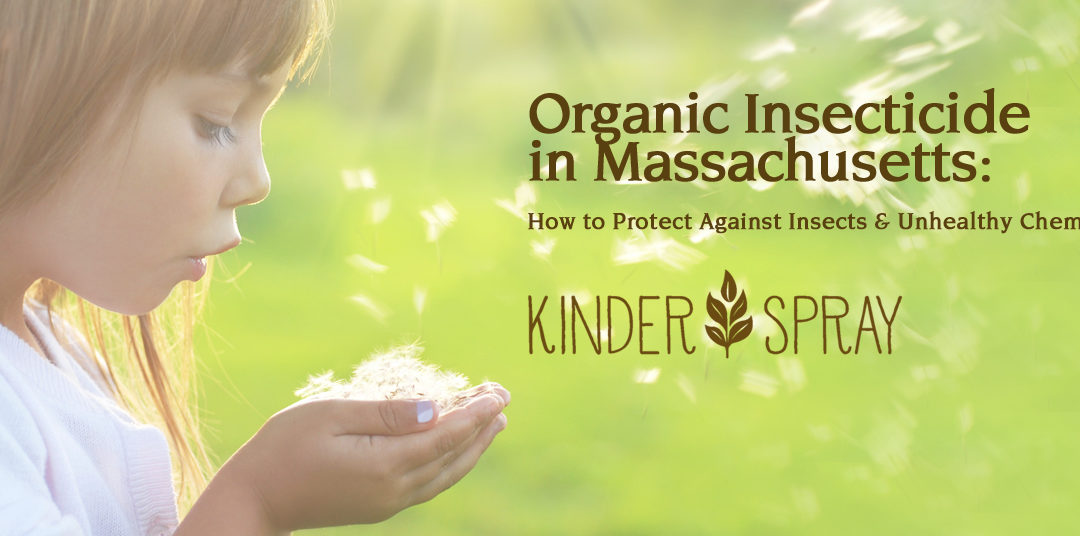If you have an insect problem on your property and you want to address it safely, then it is important to utilize an organic insecticide option
The sanctity of green spaces can be easily disrupted by pesky and potentially-dangerous insects like ticks and mosquitoes.
Whether you manage beautiful public spaces, governmental lawns, or your own residential yard, it is important to take appropriate measures to protect the area. That’s where Kinder Spray can help you.
We offer a range of organic insecticide packages for treating your environment and guarding against unwanted insects. Contact us today for a free consultation.
Reasons why organic insecticide is a better option than synthetic insecticides
The comparison between synthetic insecticides and organic insecticides has been on-going for years and has been conducted by a variety of researchers.
Organic insecticides are for people who recognize the dangers that conventional, synthetic insecticides can create. Synthetic insecticides can pollute ecosystems, kill pollinators and other beneficial bugs, and can be potentially harmful to humans and pets. With extended use, synthetic insecticides can negatively impact entire ecosystems.
Organic insecticides provide a safer option. Our organic pesticide is compliant with the National Organic Program. The product is derived from natural essential oils of plants, yet it packs a punch like synthetic insecticides. What makes our product special is its ability to connect with ‘markers’ in the central nervous systems of pests, leading to the shutting down of their bodily functions. The insects become confused and unable to move, as their exoskeletons dehydrate and they perish. Our organic insecticide is not only safe for us and the environment, it is also effective.
Here are three additional reasons why organic insecticides are a better option than conventional insecticides.
- Conventional insecticides have been shown to include carcinogens: Looking at the most commonly used insecticides, 17 have been marked as probable or possible carcinogens. Furthermore, 24 of the 30 most-used pesticides can lead to liver or kidney damage. Another 18 can negatively impact hormones of the endocrine system, and 14 others can lead to neurotoxicity.
- Residuals from synthetic insecticides and herbicides can live on and travel through ecosystems: The Pesticide Action Network reports on findings of insecticides in the environment. According to its website, “Scientists at the Centers for Disease Control and Prevention measure pesticides and other chemicals in the bodies of Americans every few years. In the most recent study, CDC tested for 212 chemicals, including 44 pesticides — and found most of them. DDT breakdown products were found in more than 85 percent of Americans tested, though the chemical hasn’t been widely used here since 1972.”
- Organic insecticides are environmentally-friendly, capable of eliminating pests, and they move through ecosystems properly: The products we use at Kinder Spray are all-natural, eliminating the worry of polluting the environment and harming people. The soap-like nature of our organic insecticide is reactivated during rains, and our BTI briquettes are effective in stagnant water areas where they will slowly disintegrate to treat the entire water source.
If you want to protect your lawn, without the possibility of harming people, pets, and the environment, then you should reach out to us today for a free consultation. We can help you treat your insect problem in the safest, most-efficient manner possible.
Resources for this article:
–Health Effects of 30 Commonly Used Pesticides
–Pesticides in Our Bodies

